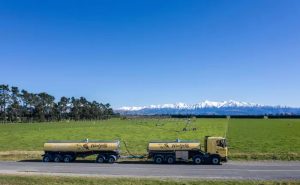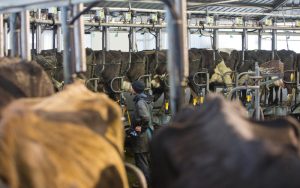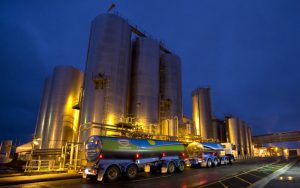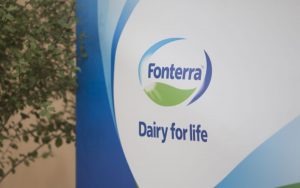
Key numbers for the six months ended January compared to a year ago:
- Net profit $364m vs $391m
- Revenue $10.8b vs $9.9b
- Cost of goods $9.04b vs $7.95b
- Margin 14.6% vs 17.4%
- Interim dividend 5 cents a share
The co-operative’s earnings were squeezed by having to pay record prices to its suppliers, which flowed through to the cost of producing the value added goods for the food industry and consumers.
Chief executive Miles Hurrell said Fonterra was performing well, but feeling the pinch of record milk prices, reduced milk supplies, and uncertainties caused by the pandemic.
“Our earnings have been achieved at a time when our input costs have been significantly higher with the average cost of milk up almost 30 percent on the same time last year. This shows we’re performing well even with a high Farmgate Milk Price. ”
“The higher milk price put pressure on our margins in Foodservice and Consumer, and we also felt the impact of Covid-19 in many of our markets. Lower New Zealand milk collections reduced our total production and this impacted our overall sales volumes,” Hurrell said.
He said sales in the Americas and Europe were better, driven by improved performance in Chile business and increased sales of higher value ingredients, used to make high protein snack bars and ready-to-drink nutrition beverages.
However, China earnings were down 20 percent as the high milk price reduced margins, and its Asia Pacific operations, including New Zealand, suffered a similar hit for the same reasons, resulting in earnings falling by 33 percent.
Hurrell said on top of staff disruptions caused by Covid, the conflict in [Ukraine was adding uncertainty to the global market and raising fuel and grain prices.
Second half outlook
He said the co-operative was sticking with forecasts of a farmgate milk payout of $9.30 – $9.90 a kilo of milk solids, and earnings of 25 – 35 cents per share remain.
“While the milk price is at a record high, pricing in our ingredients business … has been supportive of both milk price and earnings and we expect this to continue in the second half.”
“In the medium term, we expect the supply and demand outlook to go some way towards underpinning a strong milk price next season,” Hurrell said.
Fonterra has a strategy of concentrating on using New Zealand milk to drive export sales rather than being a global producer, which has resulted in asset sales and slashing of debt.
It is currently looking at selling its Chilean operations and is reviewing its Australian business as well.
The co-operative said its chief financial officer, Marc Rivers, would leave later in the year, after overseeing Fonterra’s financial turnaround and capital restructuring.






















